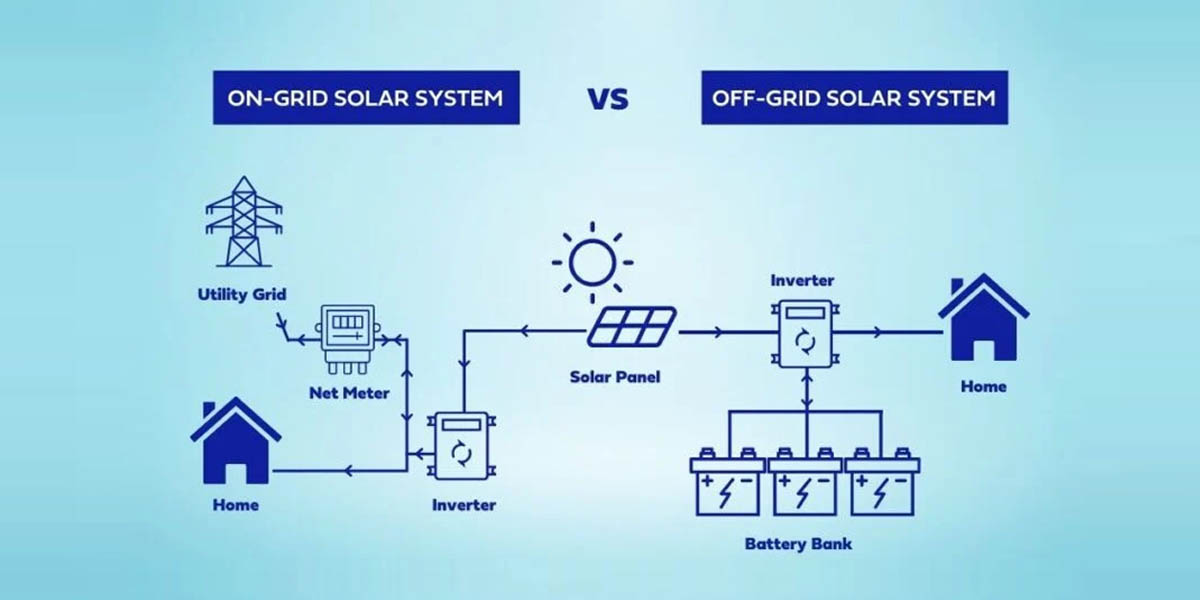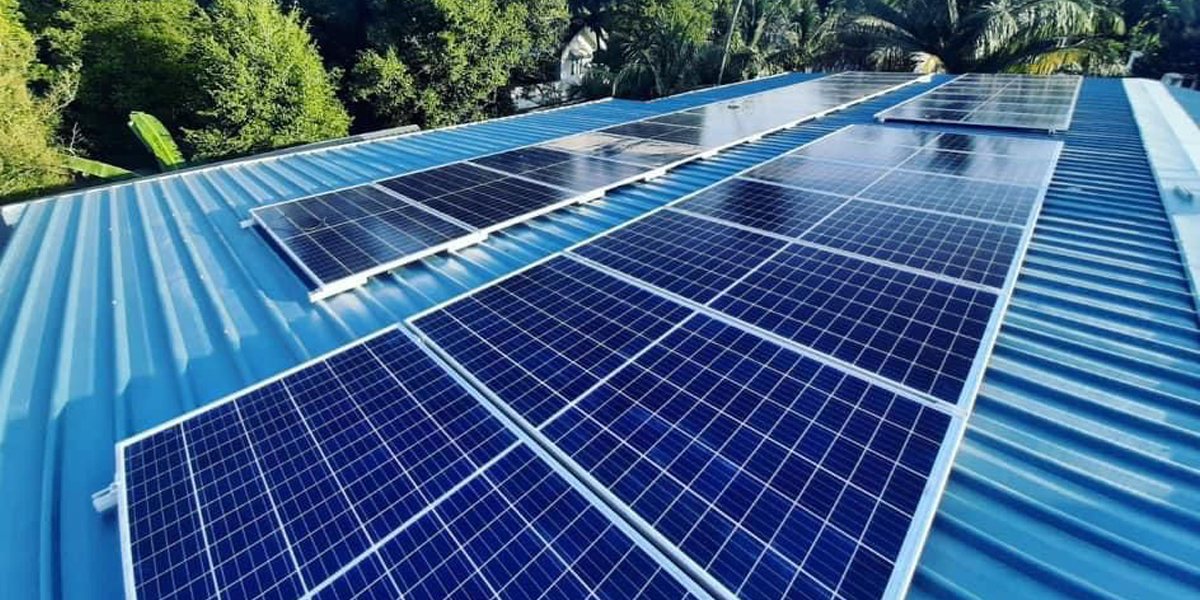The difference between off-grid and on-grid solar energy
Solar power is becoming a sustainable solution as the demand for renewable energy rises. The abundance of sunlight in Kerala makes solar energy an increasingly popular choice. In terms of solar installation, you have two primary choices: on-grid and off-grid. It is important to understand the differences between these two setups so that you can decide which is most suitable for your needs.
What is an on-grid solar system?
An on-grid solar system is directly connected to the local electric grid, and is also known as a grid-tied system. Solar panels generate electricity during the day, and excess power is sent back to the grid at night. The grid can provide you with energy when solar production is low - such as at night or on cloudy days.
Key features of on-grid solar systems:
- Grid connectivity: there is no interruption in the power supply to your home or business.
Net metering: net metering is one of the biggest advantages of an on-grid solar system in Kerala, which allows you to sell excess electricity back to the utility company, potentially lowering your energy bill.
Advantages of on-grid systems:
Potential drawbacks:
- No power during outages: on-grid solar systems cannot function during power outages without a backup generator or battery system.
What is an off-grid solar system?
The power grid is not connected to an off-grid solar system. Solar panels provide power to these systems, and battery storage is used to store excess energy during nighttime or on cloudy days.
Key features of off-grid systems:
- Total independence: off-grid systems do not rely on the grid for power generation and storage.
- Battery storage: batteries are used to store electricity produced by solar panels.
- Backup power: off-grid systems may require backup power sources like generators during extended periods of cloudy weather to ensure continuous power.
Advantages of off-grid systems:
- Energy independence: a remote area with unreliable or nonexistent grid access is an ideal location for off-grid systems. As a result, this option allows for complete independence from electricity providers.
- No electricity bills: off-grid systems do not require electricity bills since they are not connected to the grid.
- Higher costs: batteries and backup generators increase the cost of off-grid systems.
- Energy management: monitoring energy consumption is essential when there is no grid connection, especially at night.
Why choose an on-grid solar system in Kerala?
On-grid solar systems are attractive to homeowners and businesses in Kerala due to the net metering policy. In addition to its high solar potential, the state can export excess electric power back to the grid, which reduces energy costs. Here’s why an on-grid solar system in Kerala might be the right choice for you:
- Maximize savings: by sending excess solar power to the grid, net metering allows you to reduce your energy bills significantly.
- Simplicity and convenience: on-grid systems do not require batteries, making them simple to install and maintain.
- Ideal for urban areas: on-grid systems provide hassle-free integration of solar energy into urban areas with reliable access to electricity.
Off-grid and on-grid solar systems can be chosen based on factors such as location, energy requirements, and budget. Generally, on-grid systems are more affordable and more beneficial for urban and suburban households. Alternatively, an off-grid system may be worth considering if you want complete independence from the grid, especially in remote areas. Regardless of the system you choose, both contribute to a greener future and offer long-term savings. Solar energy is not just a financial investment; it’s a commitment to sustainability and energy independence.




